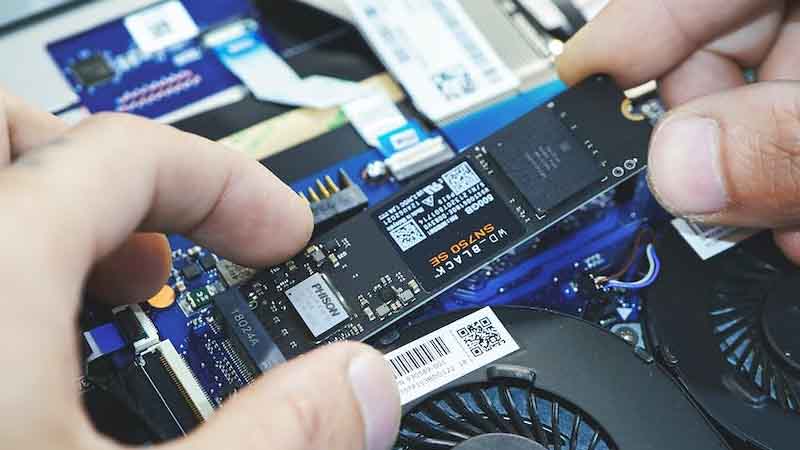
SSD
Digital Data can be Available in Kilograms
Welcome to the age of digital information! Nowadays, we are surrounded by digital data every moment, and our lives are increasingly dependent on it. The future of digital data is incredibly promising. From smartphones and laptops to Wi-Fi routers, modern cars, bikes, and even home appliances, everything seems to be connected to the vast world of digital data. As we continue to embrace and utilize digital data, we gain the ability to better understand and navigate our daily events and life.
But let’s take a step back and ponder for a moment: What exactly is digital data? In simple terms, when we use smartphones, each phone comes with a memory capacity. For instance, 128GB phones are quite popular these days, and this is the unit of digital data. Digital data can be likened to a complex transistor switch.
Consider a light bulb connected to a switch – this is a basic representation of digital data. When you flip the switch on, the bulb lights up; when you turn it off, the bulb goes dark. The fundamental concept here is ON and OFF, which corresponds to the binary language – ON is 1, and OFF is 0. It’s the foundation of digital data.

Now, if we think of the switch as a form of memory, and memory stores data. The switch, like any physical object, has weight, measured in grams or kilograms. This brings us to the intriguing idea that digital data used in electronics has a weight. For example, a 128GB SD card weighs about 2 grams. This implies that if 2 grams of data equals 128GB, then 1000 grams of data would amount to (128 * 1000)GB of digital data, which is a whopping 128,000GB. Moreover, 128 terabytes equate to just 1 kilogram of digital data.

Looking ahead, the future is poised to be dominated by digital data. It is anticipated that we will use digital data as the currency of nations. The size of a country’s digital data will likely be directly proportional to the value of its currency. This shift has already begun; major corporations are now concentrating on collecting data by offering free services. While individuals enjoy these services for free, many are not fully aware that they are essentially exchanging their data in return. As time progresses, this data will play a pivotal role in the growth of both companies and individuals alike.
In conclusion, our world is evolving into a digital data-centric one. The devices we use daily, the services we enjoy, and the information we share are all contributing to the ever-expanding realm of digital data. Embracing this evolution will not only enhance our understanding of the world but also shape the future landscape of economies and societies around the globe. The era of digital data is here to stay, and its impact will continue to reverberate in ways we are only beginning to comprehend.
Also Read:
- LG Innotek’s Advanced Under Panel Camera (UPC) Tech For Full-Screen iPhones After 2026.






